
Edgeworth David Medal
The Edgeworth David Medal is awarded for the most meritorious contributions to knowledge and society in Australia or its territories, conducted mainly in New South Wales by an individual who is from 5–15 years post-PhD or equivalent on 1 January of the year of the award, together with signs of leadership. The recipient may be resident in Australia or elsewhere.
The medal is named after the pioneering geologist and longstanding supporter of the Society, Sir Edgeworth David FRS, who wrote the first comprehensive record of the geology of Australia. In September 1942, Henry Ferdinand Halloran, who had joined the Society in 1892, decided to celebrate his jubilee as a member by making a donation to the Society. In May 1943 the Council decided to use some of Henry Halloran’s gift to establish the Edgeworth David Medal, to be awarded annually to scientists under the age of 35 years.
In October 1943, the sculptor Lyndon Dadswell was commissioned to draw up a design for the Edgeworth David Medal. About three years elapsed before Dadswell finalised the design. The Council of the Society had decided at an early stage that a portrait of the late Professor Sir Edgeworth David would appear on the obverse side of the medal. Members of the Council were not satisfied that the first plaster cast of the medal was a good likeness of Sir Edgeworth and a modified design was finally accepted by the Council in March 1947.
The first award of the Edgeworth David Medal was made at the Annual General Meeting of the Society in April 1949.
Edgeworth David Medal 2024
The Edgeworth David Medal for 2024 has been awarded to Professor Yansong Chen, an ARC Future Fellow from the UNSW Sydney School of Chemical Engineering, is the Director of the PROMO laboratory which undertakes research into the process modelling and optimisation of reacting flows, with applications in the resource and energy sector. The mass deployment of photovoltaic solar panels plays a vital role in Australia’s meeting of Net Zero 2050 Targets. Importantly, at their end-of-life, these panels must be recycled to enable genuine life-cycle Net-Zero and to meet Australia’s Waste Action Plan. Unfortunately, current photovoltaic solar panel recycling consists of simply stripping the aluminium frames and sending the rest to landfill. In an Australian first, and inspired by metallurgy engineering, Professor Yansong Shen has developed a sustainable, full-loop system for end-of-life solar panels. This environmentally friendly recycling process not only diverts waste from landfills but also provides materials for new solar panel manufacturing.
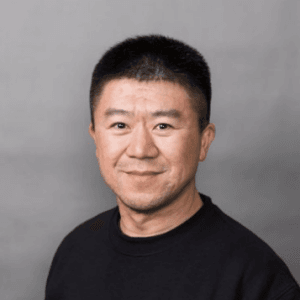
Edgeworth David Medal 2023
The Edgeworth David Medal for 2023 has been awarded to Professor Qilin Wang FRSN of the University of Technology Sydney. Professor Wang, has achieved international recognition for his contributions to sustainable wastewater treatment and wastewater-based epidemiology. His patented technology can convert wastewater treatment plants into carbon-neutral energy generators by ingeniously harnessing a waste by-product on-site. In addition to this energy innovation, Professor Wang’s technology significantly reduces the environmental impact of wastewater treatment by effectively preventing pollution — including antibiotic resistance genes, pathogens, nitrogen, microplastics, and ‘forever chemicals’ – from entering the environment while minimising waste production and land usage.
Furthermore, Professor Wang has pioneered the development of an accurate prediction tool that can forecast hospital admissions due to COVID-19 up to four weeks in advance, relying on wastewater-based epidemiology. His outstanding contributions have been recognised through numerous research and industry awards, including a Eureka Prize for Outstanding Early Career Researcher, a Eureka Prize for Applied Environment Research, an Australian Research Leader in Water Supply & Treatment, a NSW Young Tall Poppy, a Prime Minister’s Prize Finalist, a MIT Technology Review Innovator, and Australia’s Most Innovative Engineer. He secured a tenured full professorship only seven years after PhD completion, a German Humboldt Fellowship for Experienced Researcher, an ARC DECRA Fellowship only six months after his PhD completion, and an ARC Future Fellowship—Level 2 only five years after PhD completion.
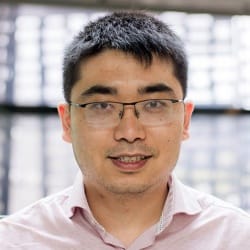
Edgeworth David Medal 2022
he Edgeworth David Medal for 2022 has been awarded to Dr Tim S Doherty, an ARC DECRA Fellow in the School of Life and Environmental Sciences at the University of Sydney. Dr Doherty has made extraordinary contributions in the fields of predator-prey dynamics, movement ecology and fire ecology, emerging as a pre-eminent scientist of his generation in developing these fields and in exploring how each is influenced by human modification of the environment. Dr Doherty’s transformative insights have been achieved by combining field experiments with novel theoretical frameworks and global syntheses. Key contributions include revealing that invasive predators have contributed to more than 50% of bird, mammal, and reptile extinctions globally, and conducting vital applied field research on fire and invasive species that informs conservation policy and management.

Edgeworth David Medal 2021
The Edgeworth David Medal for 2021 has been awarded to Dr Lining Arnold Ju, an ARC DECRA Fellow in the Faulty of Engineering at the University of Sydney. Dr Ju employs innovative and cutting-edge research in mechanical engineering and biomechanics to open new avenues for the diagnosis, monitoring, and treatment of blood clotting diseases. In just 8 years since his PhD award and under 35 years of age, he has been an ARC DECRA Fellow and a Heart Foundation Future Leader Fellow and has won awards such as the;MIT TR35 Innovator, the Australian Museum Eureka Prize and NSW Young Tall Poppy. His academic standing is on a steep upward trajectory nationally and internationally. He is now spearheading his own Cardiovascular Biomechanics Lab for organ-on-chip blood clot assessment and the development of future cardiovascular point-of-care tests and telehealth microdevices.
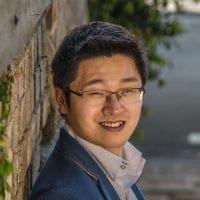
Edgeworth David Medal 2020
The Edgeworth David Medal for 2020 has been awarded to Associate Professor Brett Hallam of the School of Photovoltaic and Renewable Energy Engineering at UNSW (Sydney). In less than six years from completion of his PhD, Scientia Fellow Brett Hallam has established himself as a national and international leader in the highly competitive field of crystalline silicon photovoltaics, particularly in the areas of light induced degradation, hydrogen passivation and defect engineering. Although he has made a major impact on photovoltaics globally, this is in addition to his profile and leadership in crystalline silicon photovoltaics in Australia. Professor Hallam’s research addresses one of the key challenges in sustainability, that is, access to clean electricity. His work on hydrogen passivation to avoid light induced degradation of solar cells means that the cost of photovoltaics can be reduced greatly, increasing the competitiveness of this form of electricity compared with that generated by fossil fuels.
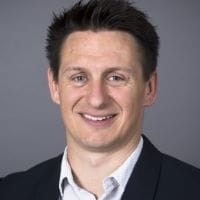
Edgeworth David Medal 2019
The Edgeworth David Medal for 2019 has been awarded to Professor Si Ming Man, of the John Curtin School of Medical Research at the Australian National University. Professor Si Ming Man is an outstanding young researcher in the field of innate immunology, attaining a full professorship only six years after his PhD graduation. Six of his recent papers are recognised as “highly cited”, being in the top 1% of the field. His research has identified a class of disease-fighting “killer” proteins, produced by the cell, which can directly attack bacteria, causing these pathogens to die and release signals that can rapidly trigger activation of the immune system. Further studies have shown that immune receptors have critical roles in preventing gut inflammation and the development of colorectal (bowel) cancer, while most recently he has discovered that toxins from foodborne bacteria can be detected and blockaded by immune receptors to prevent sepsis.
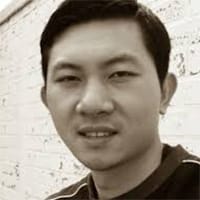
Edgeworth David Medal 2018
The Edgeworth David Medal for 2018 was awarded to Associate Professor Elizabeth J. New. She is an inorganic chemist working in the field of molecular imaging and medical sensors. Associate Professor New’s research has progressed the field in several ways, including synthesising new chemical tools that can sense chemical environments, promoting a translational approach to the development of new chemical sensors and establishing generalised methods that are now widely used to improve and evaluate potential cellular probes.
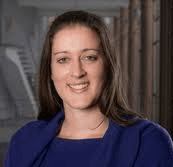
List of Past Recipients of the the Edgeworth David Medal
| Year | Recipient | Discipline |
| 1948 | R.G. Giovanelli and E. Ritchie | Astrophysics |
| E. Ritchie | Organic Chemistry | |
| 1949 | T.B. Kiely | Plant Pathology |
| 1950 | R.M. Berndt & | Anthropology |
| Catherine H. Berndt | Anthropology | |
| 1951 | J.G. Bolton | Radio Astronomy |
| 1952 | A.B. Wardrop | Botany |
| 1954 | E.S. Barnes | Mathematics |
| 1955 | H.B.S. Womersley | Botany |
| 1956 | J.M. Cowley | Chemical Physics |
| 1957 | J.M. Cowley | Chemical Physics |
| J.P. Wild | Radio Astronomy | |
| 1958 | P.I. Korner | Physiology |
| 1960 | R.D. Brown | Chemistry |
| 1961 | R.O. Slatyer | Climatology |
| 1962 | R.F. Isbell | Soil Science |
| 1963 | W.H. Fletcher | Physics |
| 1964 | M.E. Holman | Physiology |
| 1965 | J.L. Dillon | Agricultural Economics |
| 1966 | R.I. Tanner | Mechanical Engineering |
| 1967 | D.H. Green & | Geology |
| W.J. Peacock | Botany | |
| 1968 | R.M. May | Physics |
| 1969 | B.W. Ninham | Physics |
| 1970 | D.A. Buckingham | Inorganic Chemistry |
| 1971 | W.F. Budd | Glaciology |
| 1972 | D.H. Napper & | Physical Chemistry |
| J. Stone | Physiology | |
| 1973 | C.B. Osmond | Plant Biology |
| 1974 | A.W. Snyder | Physics |
| 1975 | F.J. Ballard | Biochemistry |
| 1976 | R.H. Street | Mathematics |
| 1977 | R.A. Antonia | Mechanical Engineering |
| 1978 | JT.W. Cole & | Astronomy |
| M.G. Clark | Physiology | |
| 1979 | G.C. Goodwin | Electrical Engineering |
| 1980 | Michael Anthony Etheridge | Geology |
| 1981 | Martin Andrew Green | Applied Physics |
| 1982 | Nhan Phan-Thien | Mechanics |
| 1983 | Denis Wakefield | Ocular Immunology |
| 1984 | Alan James Husband | Pathology |
| 1985 | Simon Charles Gandevia & | Clinical Neurophysiology |
| Brian James Morris | Molecular Biology | |
| 1986 | Leslie David Field & | Chemistry |
| Peter Gavin Hall | Statistics | |
| 1987 | Andrew Cockburn | Zoology |
| 1988 | Peter Andrew Lay | Inorganic Chemistry |
| 1989 | Trevor William Hambley | Chemistry |
| 1990 | Timothy Fridjof Flannery | Taxonomy & Phylogeny – Macropodidea |
| 1991 | Mark Harvey | Taxonomy – Invertebrates |
| 1992 | Peter James Goadsby & | Neurophysiology |
| Keith Alexander Nugent | Optics | |
| 1993 | John Skerritt | Agriculture (Genetics) |
| 1994 | Richard Hume Middleton | Electrical Engineering |
| 1995 | Anthony Bruce Murphy | Physics |
| 1996 | Peter Alexander Robinson | Physics |
| 1997 | Albert Zomaya | Mathematics |
| 1999 | Dr Merlin Crossley | Molecular Biology |
| 2000 | Dr Michael Coon Yoong Lee | Zoology |
| 2001 | Dr Samantha Richardson | Evolution |
| 2002 | Professor Marcella Bilek | Physics |
| 2003 | Dr Stuart Robert Batten | Chemistry |
| 2004 | Dr Cameron Kepert | Chemistry |
| 2005 | A/Prof Christopher Barner-Kowollik | Chemistry |
| 2006 | Professor Barry Brook | Environmental Science |
| 2007 | A/Prof Stuart Wyithe | Astrophysics |
| 2008 | Dr Adam Micolich | Physics |
| 2009 | A/Prof Nagarajan Valanoor | Materials Science |
| 2010 | A/Prof Angela Moles | Botany |
| 2011 | Dr Trent Woodruff | Pharmacology |
| 2012 | Dr Joanne Whittaker | Geophysics |
| 2012 | A/Prof David Wilson | Mathematics and Public Health |
| 2013 | A/Prof David Wilson | Epidemiology |
| 2014 | A/Prof Richard Payne | Chemistry |
| 2015 | A/Prof Simon Ho | Biology and Evolution |
| 2016 | Dr. Muireann Irish | Neuroscience |
| 2017 | Dr Angela Nickerson | Psychology |
| 2018 | Associate Professor Elizabeth J. New | Chemistry |
| 2019 | Professor Si Ming Man | Immunology |
| 2020 | Associate Professor Brett Hallam | Photovoltaic Engineering |
| 2021 | Dr Lining Arnold Ju | Mechanical Engineering / Biomechanics |
| 2022 | Dr Tim S Doherty | Ecology / Predator-Prey Dynamics |
| 2023 | Professor Qilin Wang | Sustainable Waste Water |
| 2024 | Professor Yansong Shen | Sustainability Engineering |